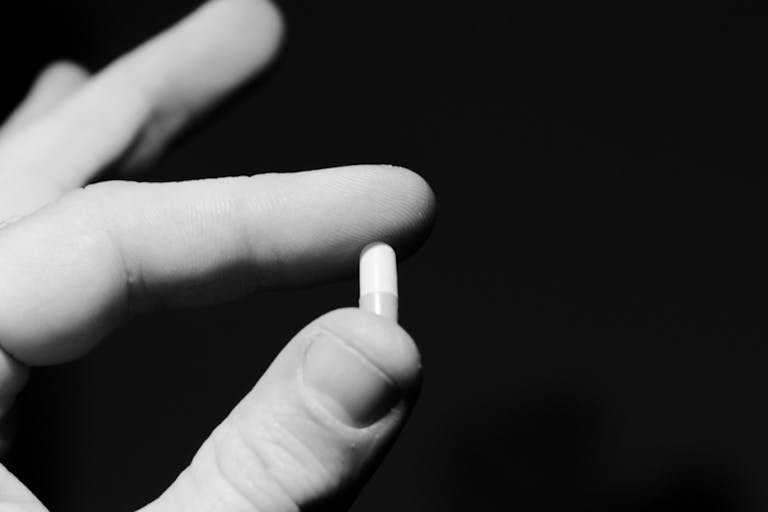
Judge rules against allowing assisted suicide tourism in New Jersey
Leslie Wolfgang
·
Four psychiatrists speak out against assisted suicide: Legal doesn’t mean ethical
When it comes to assisted suicide, some doctors are reminding us that legal doesn’t always mean ethical.
In an article in Psychiatric Times titled, “Against Assisted Suicide,” four psychiatrists argued that it is not ethical to help patients end their own lives, even if it is technically legal. The authors of the article include Ronald W. Pies, MD; Mark S. Komrad, MD; Cynthia M.A. Geppert, MD, MA, MPH, MSBE, DPS; and Annette Hanson, MD.
The article was written in response to another article in the same publication titled, “A New Question in End-of-Life Ethics,” which claimed that there is a difference between suicide and situations in which patients with terminal illnesses choose to refuse treatment or hasten their own deaths. The authors of this article include Thomas Strouse, MD; Margaret Battin, PhD; J. Michael Bostwick, MD; Lewis M. Cohen, MD; Elizabeth Morrison MD; and Stuart Youngner, MD.
Ten states and the District of Columbia have now legalized Medical Aid in Dying (MAiD), also known as Physician Assisted Suicide, the practice of a physician providing a terminally ill patient, at their request, with a lethal dose of prescription medication intended to end the patient’s life. Strouse et. al. argued that MAiD is legal in 22% of the U.S. population and these states’ statutes explicitly stipulate that such deaths are not suicide.
In “Against Assisted Suicide,” the authors were quick to take issue with the argument that legal means ethical and that there is a distinction between suicide and physician assisted suicide.
“While redefining suicide averts legal liability for physicians providing MAiD, it does not change the essentially unethical nature of the act itself. The term medical aid in dying fundamentally means helping patients kill themselves,” the authors stated.
READ: Bioethicist slams California for considering assisted suicide for those with dementia
They continued, “Indeed, the process typically described as MAiD in no sense aids dying; on the contrary, it rapidly converts an ill individual into a dead one. This is substantively different than the withdrawal of heroic but nonbeneficial or inappropriate measures, such as the use of ventilators that merely prolong the dying process in the final stages of a terminal illness.”
Moreover, in most jurisdictions where MAiD is allowed, there are no laws requiring treatment by a mental health professional. The authors explained that many patients seek a hastened death because of dysfunctional thoughts, such as fear of pain after watching a grandfather die a painful death in 1975. Addressing these fears through compassionate care and communication is critical. For example, the doctor can discuss with the patient how pain management has come a long way since 1975 and a peaceful death with palliative care is possible.
Article continues below
Dear Reader,
Have you ever wanted to share the miracle of human development with little ones? Live Action is proud to present the "Baby Olivia" board book, which presents the content of Live Action's "Baby Olivia" fetal development video in a fun, new format. It's perfect for helping little minds understand the complex and beautiful process of human development in the womb.
Receive our brand new Baby Olivia board book when you give a one-time gift of $30 or more (or begin a new monthly gift of $15 or more).
“These are forms of psychological distress which, in our view, are best managed with supportive and empathic counseling and/or cognitive behavioral interventions, provided to patients and their families — not by prescribing lethal drugs,” the doctors explained.
Although pain is also cited as a reason to legalize assisted suicide, Live Action News previously reported that data from Oregon has found that people most often cite a “loss of autonomy” as their reason for wanting to die, not because they’re dying from a painful, terminal illness. Multiple other studies in well-respected medical journals have found that people seek assisted suicide because they are hopeless, afraid of being a burden, have little to no support, and are depressed — the same reasons healthy people attempt to kill themselves.
The article’s authors also pointed out that trying to reduce the stigma associated with MAiD by differentiating it from suicide has the unintended consequence of actually adding to the stigma surrounding suicide.
“In our view, creating a binary distinction between MAiD and conventional suicide tends to marginalize individuals in the conventional group as ‘the Other,’” the authors stated. “This position may suggest to the general public that suicidal individuals with mental illness value their lives less than those with terminal physical illnesses — a claim we reject.”
“We believe that efforts to promote MAiD would be better directed toward destigmatizing the mental illnesses that underlie the majority of suicides and toward bolstering the availability of state-of-the-art palliative care,” they added. The authors emphasized that the American College of Physicians (ACP) does not support the legalization of physician assisted suicide and instead advocates for helping patients in the last chapter of their life through compassionate support, quality care, and communication.
“Like the ACP, we reject the implication that merely legalizing MAiD somehow means that it is consistent with ethical medical practice,” the authors concluded. “Quite the contrary. As physician and ethicist Leon Kass, MD, has pointedly cautioned: ‘We must care for the dying, not make them dead.’”
Overall, the assisted suicide movement is sending the message that we need to stop treating people with terminal illnesses — as if their lives aren’t worth saving. That narrative needs to change and the focus needs to be shifted to improving compassionate patient care, not on ending lives.
“Like” Live Action News on Facebook for more pro-life news and commentary!
Live Action News is pro-life news and commentary from a pro-life perspective.
Contact editor@liveaction.org for questions, corrections, or if you are seeking permission to reprint any Live Action News content.
Guest Articles: To submit a guest article to Live Action News, email editor@liveaction.org with an attached Word document of 800-1000 words. Please also attach any photos relevant to your submission if applicable. If your submission is accepted for publication, you will be notified within three weeks. Guest articles are not compensated (see our Open License Agreement). Thank you for your interest in Live Action News!

Leslie Wolfgang
·
Issues
Nancy Flanders
·
Politics
Bridget Sielicki
·
Issues
Sheena Rodriguez
·
Guest Column
Right to Life UK
·
Issues
Bridget Sielicki
·
Human Rights
Amanda Vicinanzo
·
Human Interest
Amanda Vicinanzo
·
International
Amanda Vicinanzo
·
Issues
Amanda Vicinanzo
·
Newsbreak
Amanda Vicinanzo
·